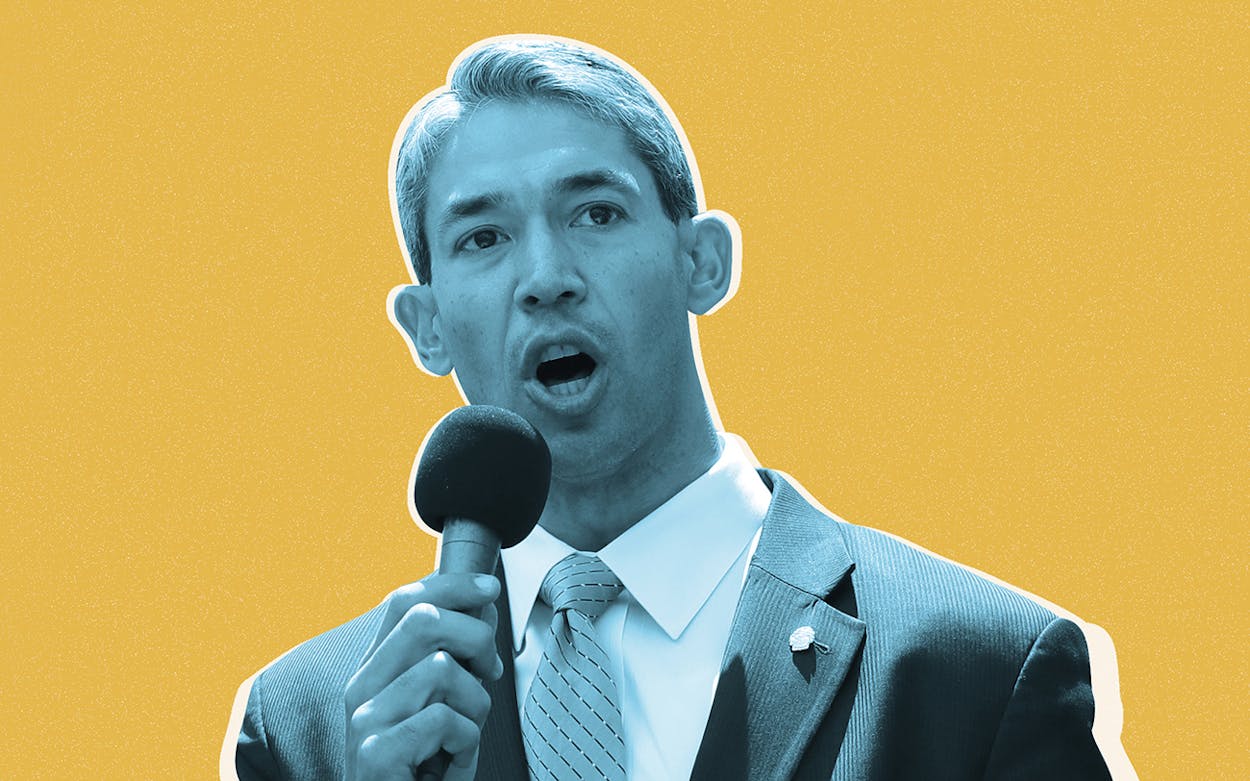On Wednesday, Texas Senators Ted Cruz and John Cornyn penned a joint letter to Amazon CEO Jeff Bezos, pitching the state of Texas as the landing site for the online retail giant’s planned second headquarters, HQ2. “Everything is bigger in Texas, and that includes our economy, our skilled workforce, and our quality of life,” they wrote, noting that three of the nation’s top-five fastest growing cities are in Texas: Houston, Austin, and San Antonio. All three of those cities and others across the state, including Dallas, El Paso, and Frisco, put themselves in the running for HQ2 when Amazon called for proposals last month. But on the same day Cruz and Cornyn wrote their letter to Bezos, two San Antonio leaders, Bexar County Judge Nelson Wolff and Mayor Ron Nirenberg, wrote a separate letter to Bezos informing him that the Alamo city no longer wishes to be considered a potential landing spot for HQ2.
“We’ve long been impressed by Amazon and its bold view of the future,” they wrote. “Given this, it’s hard to imagine that a forward-thinking company like Amazon hasn’t already selected its preferred location. And, if that’s the case, then this public process is, intentionally or not, creating a bidding war between amongst states and cities. Sure, we have a competitive toolkit of incentives, but blindly giving away the farm isn’t our style.”
While San Antonio probably didn’t have a realistic shot to land HQ2 anyway—the detailed wish list Amazon released last month included a major airport and lots of available office space downtown, two things San Antonio doesn’t really have—it’s still surprising to see the city take a stand against the nationwide fervor to score HQ2, which is expected to generate 50,000 new jobs.
But there are some valid reasons why San Antonio wouldn’t want the new headquarters. First, as Wolff and Nirenberg mentioned in the letter, Amazon has sizable demands. The company’s request for proposal asks for the potential home of HQ2 to offer major tax incentives. Amazon has received more than $1 billion in public subsidies for its facilities since 2000, including a $7 million subsidy for a Houston warehouse last year, so the company clearly has a big figure in mind for HQ2. “Incentives offered by the state/province and local communities to offset initial capital outlay and ongoing operational costs will be significant factors in the decision-making process,” Amazon wrote in its call for bids. One economic policy expert recently told the New York Times that this sort of tactic is basically “blackmail” and equates to “corporate welfare.” According to their letter, Wolff and Nirenberg believe a winning incentive package for HQ2 will probably exceed the $3 billion the state of Wisconsin recently dolled out to Foxconn, a Taiwanese electronics manufacturer.
City officials looked at other aspects of HQ2 besides the price, too. “It has to be the right fit; not just for the company but for the entire community,” Wolff and Nirenberg wrote in the letter. “Does it create good jobs? Does it offer good benefits for employees? Are there opportunities for small businesses? Is the company a good ‘corporate citizen?'” Those are legitimate questions to ask of Amazon, which has had its fair share of systemic problems. Amazon has long wrestled with a poor reputation for how it treats low- and mid-level workers. A bombshell report by the New York Times two years ago exposed the company’s poor treatment of employees, characterizing the workplace as “bruising.” Amazon’s reputation for the way it treats warehouse workers is particularly poor, and the company has faced accusations of employees who mistreat women and pass them over for upper-level management positions due to their gender. We wrote about some of those problems in greater detail last month. The company’s main headquarters in Seattle has also played a role in the city’s intense gentrification and skyrocketing cost of living, which may have played a role in the decision of San Antonio’s leaders.
While San Antonio appears to have pulled itself out of the running, HQ2 could still land in Texas. Austin and Dallas are considered darkhorse favorites to win the bid, while Houston, El Paso, and Frisco have inserted themselves into the competition, too. It remains to be seen if any of those cities will follow San Antonio’s lead and drop out.






